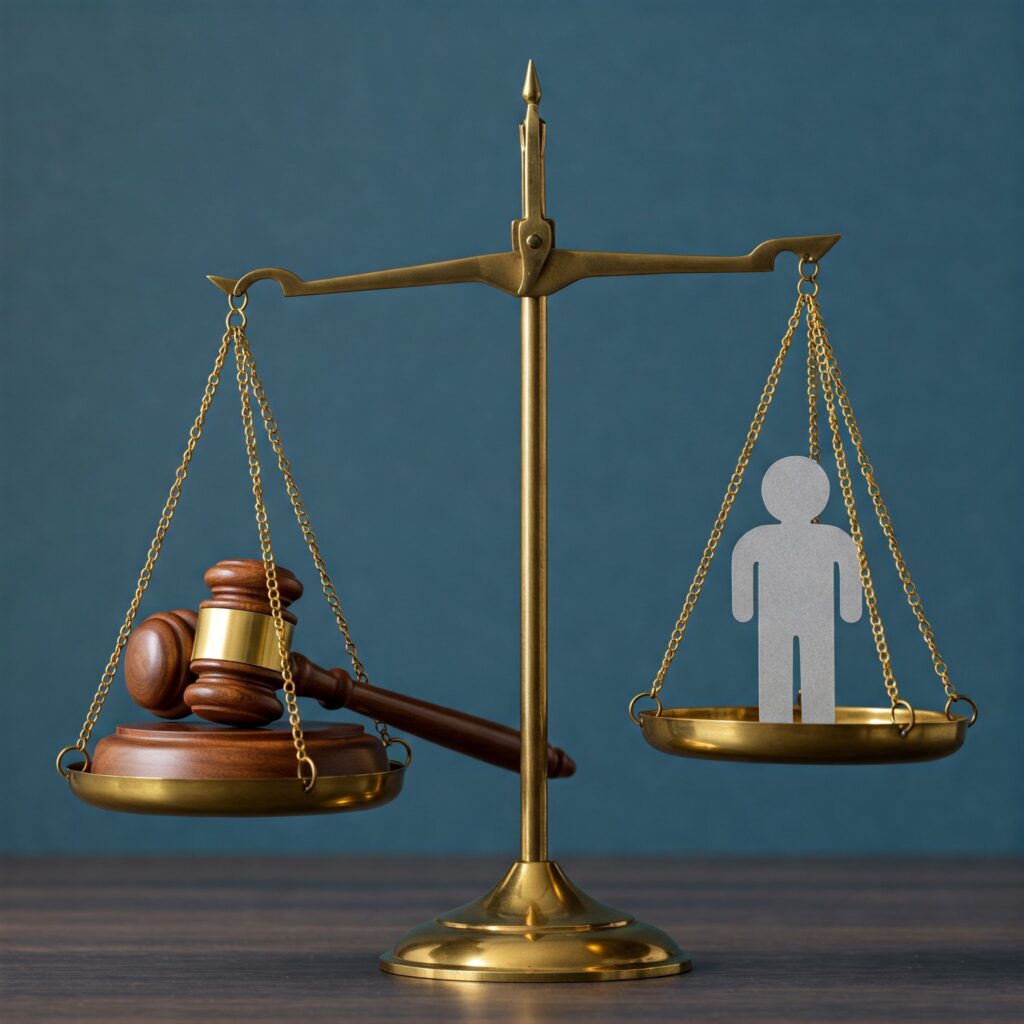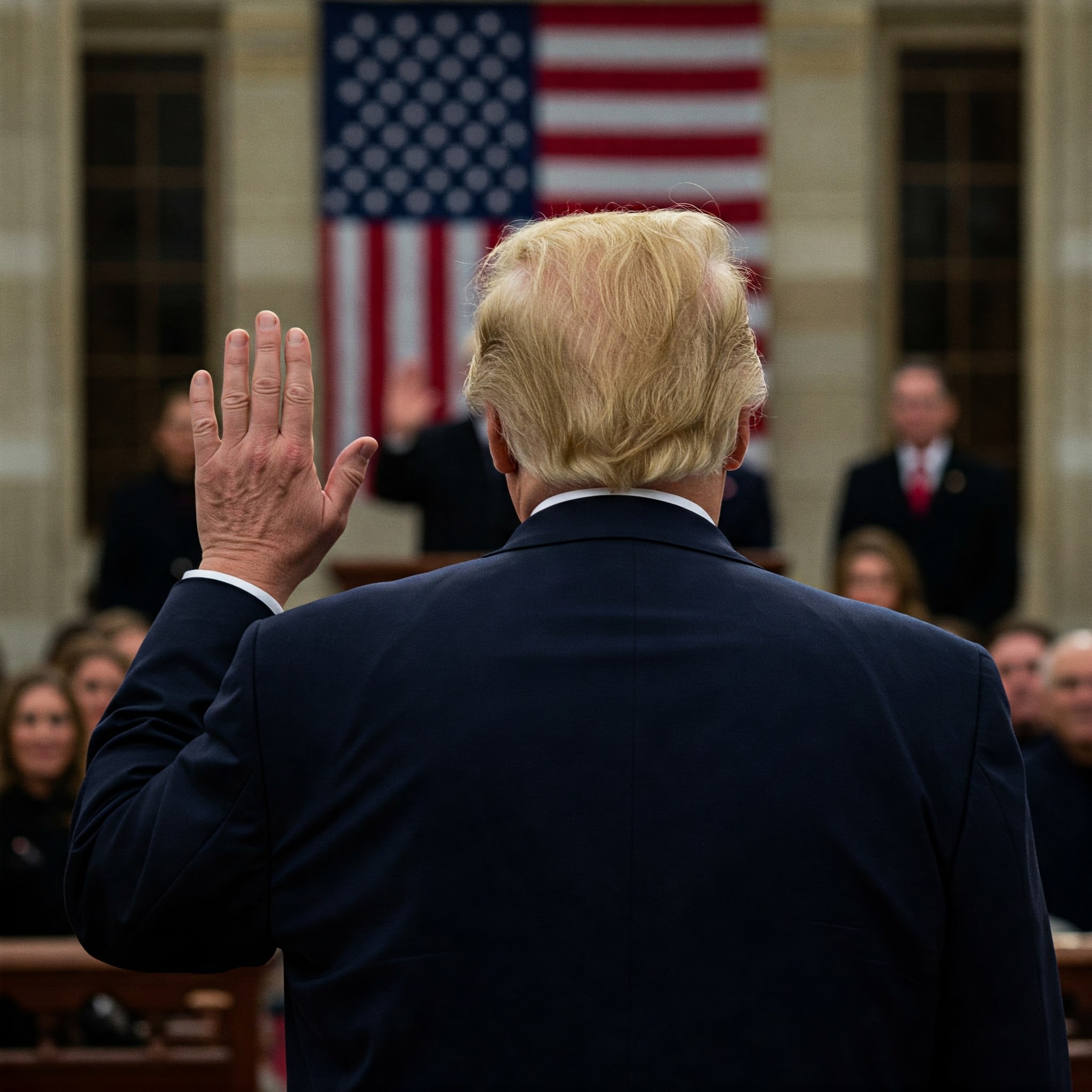The U.S. Constitution is like the main instruction book for the United States government. It includes important rules like “due process,” which is a guarantee from the Fifth Amendment that everyone gets treated fairly under the law. For example, it means people should get a fair hearing if they are accused of something. The President of the United States takes an oath, a special promise, to “preserve, protect and defend the Constitution.”
In a TV interview that aired on Sunday, President Trump was asked if he thinks a president needs to follow the Constitution, especially the part about due process for everyone in the U.S., including immigrants. He was also asked directly about the Fifth Amendment’s guarantee of fair treatment.

When asked about upholding the Constitution and ensuring due process for immigrants he wants to deport, President Trump answered, “I don’t know” multiple times. He noted that giving everyone due process might mean holding millions of trials. He added that he has “brilliant lawyers” who will follow the decisions of the Supreme Court, which is the highest court in the country.
These questions came up because the President has stated he wants to deport millions of undocumented immigrants. Following the rules of due process can make large government actions like deportations more complex.
During the interview, the interviewer also asked President Trump about the idea of serving a third term as president. The Constitution limits presidents to only two terms. In response to the question, President Trump mentioned that he plans to finish his current four-year term and then leave office, rather than attempting to run for a third term.
This article is based on the following sources:
https://www.theguardian.com/us-news/2025/may/04/trump-due-process-rights-constitution

Background Information
- The U.S. Constitution & Bill of Rights: Think of the Constitution as the ultimate law of the land in the United States. It was written over 200 years ago to create the structure for the U.S. government (like the President, Congress, and courts) and to define the basic rights of citizens. The first ten amendments (or changes/additions) to the Constitution are called the Bill of Rights. These list specific freedoms, like freedom of speech and religion, and rights for people accused of crimes.
- The Fifth Amendment (More Detail): This amendment is part of the Bill of Rights. One very important part is the Due Process Clause. While the article mentioned this means “fair treatment,” more specifically, it says the government cannot deprive any person of “life, liberty, or property, without due process of law.” This means there are fair steps and procedures the government must follow before it can take serious action against someone. Courts have generally interpreted “person” to include everyone on U.S. soil, not just citizens.
- The Presidential Oath of Office: When someone becomes President, they must take a special, serious promise called the Oath of Office. In this oath, they specifically swear to “preserve, protect and defend the Constitution of the United States.” This is a public promise to follow and uphold the country’s most important set of rules.
- The 22nd Amendment (Term Limits): While the Constitution originally didn’t say how many times a president could be elected, that changed. The 22nd Amendment was added in 1951. It clearly states that no person can be elected president more than twice (two terms). It also sets rules for presidents who take office in the middle of someone else’s term.
- The Supreme Court: This is the highest court in the United States. Its main job is to interpret the law, including the Constitution. When there are disagreements about what the Constitution means or whether a law follows the Constitution, the Supreme Court can make the final decision. Lower courts and government officials, including the President, are generally expected to follow the Supreme Court’s rulings.
- “Undocumented Immigrant” & “Deportation”: An immigrant is someone who moves to a new country to live. An “undocumented” immigrant is someone living in a country without the official government permission or paperwork required (like a visa or Green Card). “Deportation” is the legal process where the government removes a non-citizen from the country, often because they don’t have the legal right to be there or have broken certain laws. The process of deportation is supposed to follow rules, including aspects of due process.

Debate/Essay Questions
- Is it acceptable for a President to say “I don’t know” when asked if they need to uphold the Constitution, regardless of the situation?
- Should providing full “due process” (fair legal procedures) to undocumented immigrants be prioritized over speeding up deportations?
- What is more important for presidents: following the Constitution exactly as interpreted by courts, or accomplishing the goals they believe people elected them for?
Please subscribe to Insight Fortnight, our biweekly newsletter!
